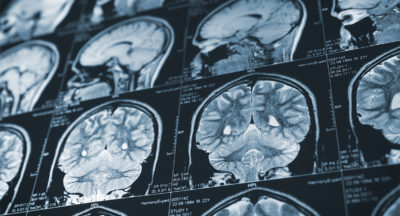
How Can I Improve My Anxiety?
Anxiety is a common and often debilitating mental health condition that affects millions of individuals worldwide. It can manifest in various forms, from generalized anxiety disorder (GAD) to social anxiety, panic disorder, and specific phobias. Living with anxiety can be overwhelming, but there are effective strategies and treatments available to help manage and improve anxiety symptoms. In this post, we will explore the question of how to improve anxiety, emphasizing the scientific evidence behind the benefits of neurofeedback therapy.
What is Anxiety?
Anxiety is characterized by excessive worry, fear, or nervousness about future events or situations. Common symptoms of anxiety may include:
- Physical Symptoms: These can include muscle tension, rapid heartbeat, sweating, trembling, and gastrointestinal discomfort.
- Cognitive Symptoms: Anxiety often leads to racing thoughts, excessive worry, difficulty concentrating, and a sense of impending doom.
- Behavioral Symptoms: Individuals with anxiety may avoid situations that trigger their anxiety, engage in safety behaviors, or experience restlessness and irritability.
- Emotional Symptoms: Anxiety can lead to feelings of fear, apprehension, and unease, often accompanied by a sense of dread.
What are Some Strategies to Improve Anxiety?
Managing anxiety involves a holistic approach that combines various strategies tailored to an individual’s unique needs and challenges. Here are some effective approaches to improve anxiety symptoms:
- Cognitive-Behavioral Therapy (CBT): CBT is one of the most evidence-based approaches for treating anxiety. It helps individuals identify and challenge irrational thoughts and beliefs that contribute to anxiety, replacing them with more rational and adaptive ones.
- Medication: Antidepressants, such as selective serotonin reuptake inhibitors (SSRIs) and benzodiazepines, are commonly prescribed to help manage anxiety symptoms. They can be particularly effective when combined with therapy.
- Mindfulness and Relaxation Techniques: Practices like meditation, deep breathing exercises, progressive muscle relaxation, and yoga can help individuals manage anxiety by promoting relaxation and reducing the physical symptoms of anxiety.
- Lifestyle Adjustments: Regular physical activity, a balanced diet, and adequate sleep play a crucial role in managing anxiety. These lifestyle changes can help regulate mood and reduce stress.
- Support Systems: Building a strong support network, including friends, family, or support groups, can provide emotional validation and a sense of connection, which is essential for managing anxiety.
- Time Management: Organizing tasks, setting priorities, and avoiding procrastination can help reduce the stress associated with feeling overwhelmed.
- Exposure Therapy: For specific phobias or fears, exposure therapy involves gradually and systematically exposing oneself to the feared situation, helping desensitize the fear response.
Can Neurofeedback Therapy Help Anxiety?
Neurofeedback therapy, also known as EEG biofeedback, is a non-invasive therapeutic approach that aims to help individuals regulate their brainwave patterns. It utilizes electroencephalography (EEG) technology to measure brainwave activity in real-time and provide feedback to the individual.
Research has shown that neurofeedback therapy can have significant benefits for individuals struggling with anxiety. Here’s why it works:
- Targeted Brain Training: Neurofeedback allows for precise targeting of specific brainwave patterns associated with anxiety disorders. By providing real-time feedback, it encourages the brain to shift toward more optimal patterns.
- Reduced Hyperactivity: In individuals with anxiety, certain brainwave patterns, such as excessive beta activity, are associated with heightened arousal and increased anxious thoughts. Neurofeedback therapy helps train the brain to reduce this hyperactivity.
- Enhanced Connectivity: Anxiety can disrupt the normal functioning of brain networks involved in emotion regulation and cognitive control. Neurofeedback therapy aims to promote healthy connectivity within these networks.
- Emotion Regulation: Anxiety often involves difficulties with emotion regulation. Neurofeedback can assist individuals in better regulating emotional responses to anxiety triggers.
- Customized Approach: Neurofeedback is highly individualized, adapting to each person’s unique brainwave patterns and needs. This customization ensures that the therapy addresses the specific anxiety-related challenges of each individual.
- Long-Term Benefits: Neurofeedback aims to produce lasting improvements in anxiety symptoms. As individuals become more proficient at self-regulation, they can continue to apply these skills even after completing therapy.
- Reduction of Medication Dependency: For individuals who rely on medications to manage anxiety, neurofeedback therapy offers a potential alternative or complementary approach. Over time, it may reduce the need for medication.
Anxiety is a challenging condition that can significantly impact an individual’s well-being and daily life. While there are various strategies to help manage anxiety, neurofeedback therapy offers a research-backed approach that targets the brain’s underlying mechanisms associated with anxiety disorders.
Neurofeedback’s ability to provide targeted brain training, reduce hyperactivity, enhance connectivity, and promote emotion regulation makes it a promising option for individuals seeking relief from anxiety. If you or someone you know is struggling with anxiety, consider exploring the potential benefits of neurofeedback therapy at Cognitive Solutions L.C.
Related Posts
Four Reasons Why You Should Consider Neurofeedback
“When you are dealing with depression and anxiety, you feel like you’re lost,”...
Flying Under the Radar: How Unrecognized Traumatic Brain Injury Can Lead to Loss of Life
The time is now to discuss your health and here’s why. - In addition to...
Can Neurofeedback Train the ADHD Brain?
Living with Attention Deficit Hyperactivity Disorder (ADHD) presents daily...
Seasonal Affective Disorder: More than the “Winter Blues”
Seasonal Affective Disorder (SAD) Seasonal Affective Disorder also known as its...





